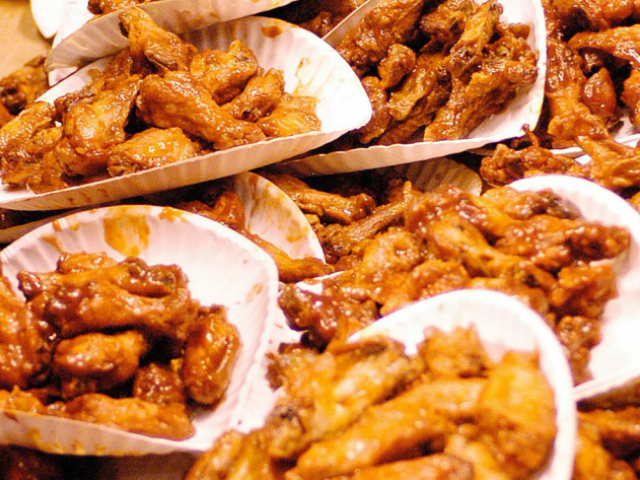A professor at the University of Tulsa is concerned that a popular YouTube talk show about buffalo wings is sexist because it hasn’t had enough female guests.
Professor Emily J.H. Contois of the University of Tulsa argues in a recently published academic journal piece that the popular YouTube show Hot Ones is problematic. The reason? Because the buffalo wing-focused series features far more male guests than female guests. According to her piece, approximately 10 percent of the show’s guests have been women.
In this brief, feminist analysis of Hot Ones, I explore the show’s gastronomic strategy for dismantling fame’s public façade and creating a sense of “authentic” celebrity, which male and female guests navigate in divergent ways. My analysis of Hot Ones informs feminist media studies, as it reveals how this YouTube show creates, maintains, and manipulates inequitable gender hierarchies through the interrelated performances of gender, food consumption, and celebrity.
Contois goes on to suggest that chicken wings are “culturally coded as a masculine food,” noting their presence at sports bars and football-viewing parties. She then goes on to point out that scientists suggest that testosterone levels influence the consumption of spicy foods, meaning that men may be more likely to consume spicy foods than women.
Culturally coded as a masculine food, chicken wings (spicy or not) are situated within “bro” media and spaces, appearing throughout the menus, programming, and advertising at sports bars and at-home football-viewing parties, particularly the Super Bowl. With regard to spiciness specifically, physiologists assert that testosterone levels influence the consumption of spicy foods, inherently linking masculinity to fiery tastes.
Although Contois points out that men may be more naturally inclined to spicy foods than women, she still suggests that men enjoy hot sauce as a part of a subconsciously calculated masculine gender performance.
A snarky summary of this study in The Cut read, “Women who love hot sauce love hot sauce, men who love hot sauce love being the type of dude who loves hot sauce” (Maggie Lange 2015). Being the type of dude who loves hot sauce is part of performing conventional masculinity, however, through actions like disregarding risk and facing danger fearlessly (R. W. Connell 2005; R. W. Connell and James W. Messerschmidt 2005; Will H. Courtenay 2000).
Contois has faced some tough criticism on Twitter for her piece. In one Tweet, Contois says that the backlash against her work is evidence that there is some truth in her Hot Ones thesis.

COMMENTS
Please let us know if you're having issues with commenting.